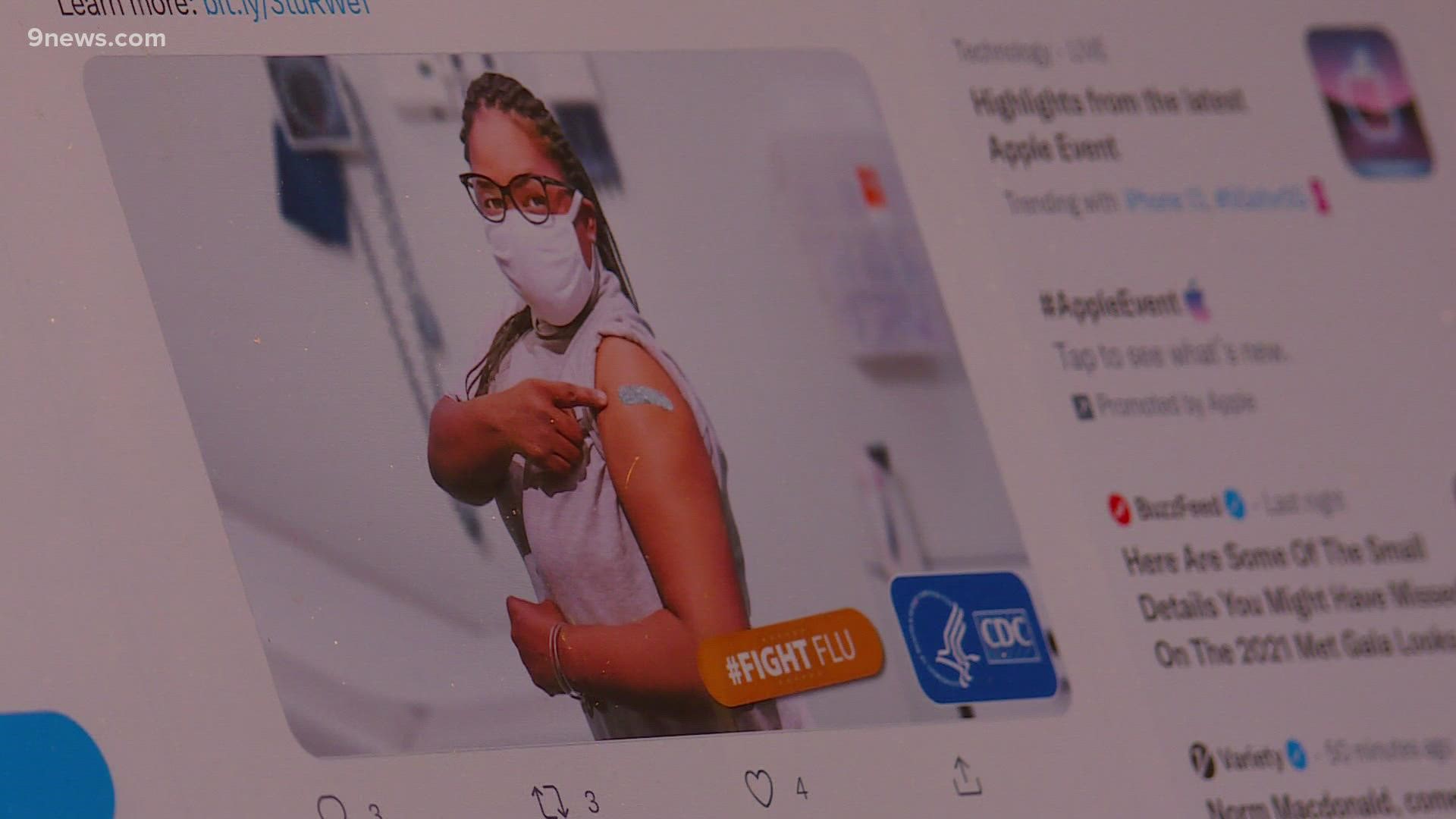COLORADO, USA — As hospital beds continue to fill up with COVID patients doctors urge everyone to get the influenza (flu) vaccine as they brace for a potentially tough flu season.
National Jewish Health Chief Medical Officer Dr. Carrie Horn, told 9NEWS Colorado usually begins to see an uptick in flu cases in November. Horn said January and February is usually when the season peaks.
Mayo Clinic infectious disease Dr. Priya Sampathkumar briefed the media on Tuesday morning in hopes of shedding some light on what flu cases may look like this year.
Why might this flu season be a bad one?
Sampathkumar: Many people wore masks all last year. Last year, having been such a good season, having no one really get sick with influenza means that this year more people are at risk so it makes it doubly important that we all get vaccinated against influenza.
Can we tell the difference between the flu and COVID without getting tested?
Sampathkumar: There’s no good way based on symptoms to tell the difference between the two and so during flu season we think of it some time between November and end of March, in most parts of the country, in some cases, the flu starts earlier and some places the flu continues later.
When flu is circulating in the community it’s important that if you have respiratory symptoms you get tested for both and depending on where you live it might be automatic or you might have to ask for it.
Can you get the COVID vaccine and the flu shot at the same time?
Sampathkumar: The really good news is that you can get the COVID vaccine and the flu vaccine at the same time.
Would you potentially get worse side effects if you do get both shots at the same time?
Sampathkumar: We don’t know because we haven’t done that before, so we’ll have to wait and see. If you are getting the third, the COVID booster, which is really the third dose of the COVID vaccine most people are not having as intense symptoms as they did with the first dose and the second dose of the vaccine. So it’s really not a very severe reaction and if they’ve had flu vaccines before then again most people don’t have very severe reactions. So hopefully all together most people will have tolerable reactions but we don’t specifically know the answer.
How long does the flu shot protection last?
Sampathkumar: For most people the vaccine protects you for at least eight months so well into the flu season. In the very elderly or the very immunosuppressed, that period of protection could be somewhat shorter at about six months that’s why we say September will get you through about March or April.
Is there a particular age group we could see an uptick in cases?
Sampathkumar: It would depend on which age group doesn’t get vaccinated, that’s what really makes the big difference. In past seasons, most of the elderly people with underlying conditions do come forward to get the flu vaccine so it’s really younger people who think, 'I don’t really need the flu vaccine' who don’t get it and they’re also the people most likely to be going out to work or school so that would be the group we would be most worried about in uptick in flu.
Can you have the flu and be asymptomatic like you can with COVID?
Sampathkumar: The same thing can happen with influenza. There's also a pre-symptomatic phase so people who do get symptoms with COVID are infectious for 48 hours before the onset of symptoms with influenza it's about 24 hours prior to the onset of symptoms and these are rough figures. Just like COVID you can be infectious before you have symptoms or you can have a completely asymptomatic infection and spread it.
With fewer mask mandates in place and hospitalizations increasing throughout the country, is there a concern for a 'twindemic?'
Sampathkumar: Right now, without influenza, hospitals are really strained throughout different parts of the country and you need the same kinds of resources for influenza and COVID, you need medical ICUs, you need ventilators, you need oxygen, you need the same kind of personnel, respirator therapists, ICU nurses to take care of people with influenza and take care of people with COVID. So we’re definitely very worried.
What should someone do if one person in a family gets the flu?
Sampathkumar: They should definitely be isolated. They should cover their nose and mouth if they come out of that space where they’re being isolated. We usually recommend isolating the person for about 24 hours after their fever resolves.
When’s the latest you can get a flu shot?
Sampathkumar: The flu vaccines all expire in June. So until they expire you can go ahead and get the vaccine. That said flu activity is most prominent between November and March.
SUGGESTED VIDEOS: COVID-19 Vaccine

